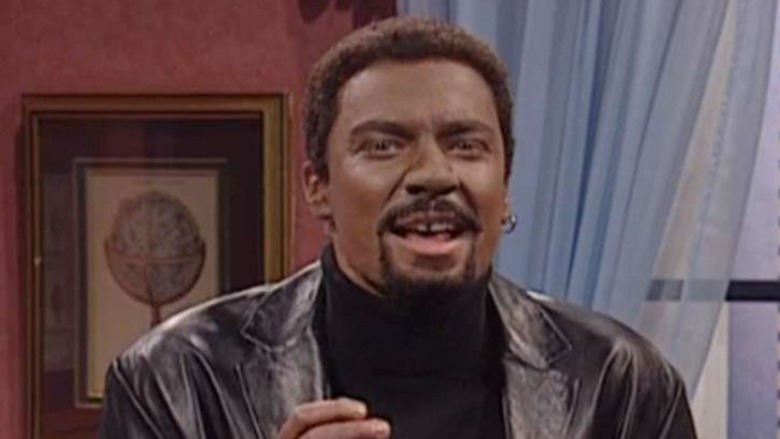The SNL Skit Jimmy Fallon Has Huge Regrets Over
The only true constant in comedy is that it is always changing. Things that were once cutting edge can seem trite after a few years, and things that once seemed okay to joke about can sometimes come off as incredibly insensitive in hindsight. In 2020, Jimmy Fallon apologized for an impression he did on "Saturday Night Live." In a 2000 sketch, Fallon donned blackface in order to play former "SNL" cast member Chris Rock. Images of Fallon in blackface began circulating over Memorial Day weekend in 2020, with the hashtag #jimmyfallonisoverparty, per Deadline.
Fallon responded on Twitter, saying "In 2000, while on SNL, I made a terrible decision to do an impersonation of Chris Rock while in blackface. There is no excuse for this. I am very sorry for making this unquestionably offensive decision and thank all of you for holding me accountable." Fallon also made a larger apology on "The Tonight Show," which he hosts (via Deadline).
Humor theorist Peter McGraw posits that all humor comes from a sense of benign violation. Something is funny if it violates the norms of society in a way that doesn't harm. Jokes disrupt our expectations, but not in such a way that it is damaging to our psyche. If the norms of society change, a violation that once seemed benign to some can come to be understood as very harmful. Of course, blackface was always harmful to the Black community. What changed in the 20 years between the "SNL" sketch and Fallon's apology was American norms surrounding blackface.
Comedy has an entrenched blackface problem
Stand-up comedy came from blackface and minstrel shows (via Penn State News). As Kliph Nesteroff documents in "The Comedians," some of the first performers we would recognize as doing modern comedy did so in blackface. "Nearly all the singles [solo acts] started to blackface," a source told Nesteroff. "But it wasn't like old-time minstrels who tried to portray a character; these new minstrels just put on black and talked white." An astonishing number of classic Hollywood stars did blackface (via The Hollywood Reporter), from Judy Garland to Bob Hope.
Contemporary comedy has been reckoning with blackface in recent years. Episodes of "30 Rock" (via Vulture), "The Sarah Silverman Program" (via CNN), and "Little Britain" (via Vulture) have all come under fire for their "ironic" use of blackface. Fallon isn't even the only "SNL" performer to wear blackface. Billy Crystal's Sammy Davis Jr. impression used blackface for years, Darrell Hammond regularly played Jesse Jackson, and Fred Armisen played America's first Black president. "It's not about race," Lorne Michaels said of the casting choice, as reported in the Washington Post. "It's about getting a take on Obama, where it serves the comedy and the writing."

